In today’s world, solar panels have become a popular and eco-friendly way to harness energy from the sun. Many people overlook the importance of regular maintenance, particularly cleaning, to ensure optimal performance.
In this comprehensive guide, we will delve into the significance of cleaning solar panels, the potential consequences of neglecting this crucial task, and the recommended frequency for cleaning. We will explore the various methods of cleaning, dos and don’ts, and best practices for maintaining solar panels.
Whether you are a solar panel owner or considering investing in this sustainable energy source, this article aims to provide you with the knowledge and insights necessary to keep your solar panels operating at their best.
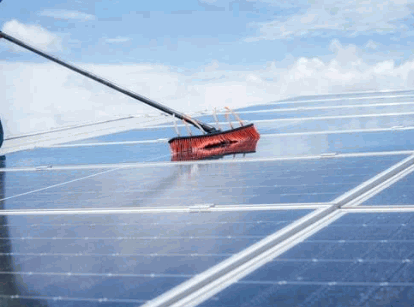
Why Is Cleaning Solar Panels Important?
Proper maintenance and cleaning of solar panels are crucial for ensuring optimal performance and longevity of the solar energy system. Regular cleaning not only enhances the efficiency of solar panels but also minimizes the impact of environmental factors and dirt accumulation on energy production.
Clean solar panels have the potential to operate at their highest efficiency, translating into increased energy output. Dust, pollen, and debris accumulating on the panels due to weather conditions can obstruct sunlight absorption, decreasing overall performance.
Professional cleaning services utilize proper techniques and equipment, ensuring thorough removal of grime without damaging the panels. While DIY methods may seem cost-effective, professional cleaning can offer a more comprehensive and long-lasting solution, reducing maintenance costs and maximizing energy production.
Ultimately, investing in regular professional maintenance can significantly enhance the overall effectiveness and lifespan of your solar panels.
Delve into: What Is The Best Way To Clean Solar Panels
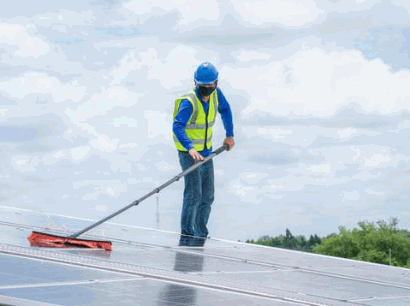
What Happens If Solar Panels Are Not Cleaned?
Neglecting the cleaning and maintenance of solar panels can lead to a decline in their performance and efficiency over time. Accumulated dirt, dust, and debris can hinder energy production, shorten the lifespan of solar panels, and potentially void product warranties.
This decreased efficiency not only impacts the electricity output but also poses potential risks related to overheating and fire hazards. The diminished performance of solar panels can lead to financial losses due to reduced energy generation.
Regular cleaning schedules and adherence to maintenance guidelines are crucial for maximizing the lifespan of solar panels and ensuring warranty coverage. By implementing routine care, solar panel owners can optimize their investment and contribute to sustainable energy generation.
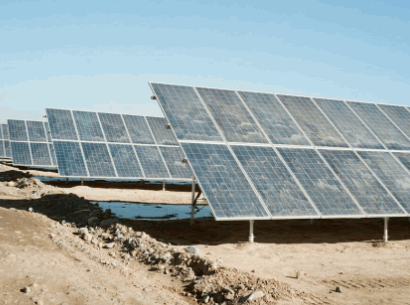
How Often Should Solar Panels Be Cleaned?
Determining the frequency of solar panel cleaning depends on various factors, including local weather conditions, environmental factors, and the specific requirements of the solar panel manufacturer. Generally, a combination of preventative maintenance and routine cleaning is recommended to ensure sustained performance and extend the lifespan of solar panels.
This is particularly crucial in regions with high levels of dust, pollen, or pollution, as these elements can accumulate on the panels and reduce their efficiency. In areas prone to frequent rainfall or humidity, the panels may require less frequent cleaning as natural washing can help remove some debris. It’s important to note that neglecting regular cleaning and maintenance can lead to a decline in energy production and overall performance, impacting the return on investment for solar panel installations.
What Are The Different Methods Of Cleaning Solar Panels?
Various methods can be employed for cleaning solar panels, including:
- The use of water and a soft cloth
- A hose and a soft brush
- A pressure washer
- Specialized solar panel cleaning kits
Each approach offers unique advantages and considerations for maintaining the cleanliness and efficiency of solar panels.
Using water and a soft cloth can effectively remove light dirt and debris, while a soft brush can be gentle yet thorough in cleaning. Some cleaning solutions are specifically formulated for solar panels to enhance their performance. Professional cleaning services may provide advanced tools and techniques, ensuring meticulous cleaning without risking panel damage.
DIY methods allow for more frequent and cost-effective cleaning, addressing challenges such as water stains and the necessity for gentle cleaning to preserve the integrity of the solar panels.
Using Water And A Soft Cloth
One of the traditional methods for cleaning solar panels involves using a soft cloth and water to gently remove dirt and debris without causing damage to the panel surface. This approach is effective for routine maintenance and can be supplemented with mild cleaning solutions for persistent stains.
Using water and a soft cloth for solar panel cleaning is a careful and non-abrasive method that helps to maintain the integrity of the panels. Regular gentle cleaning can prevent the buildup of grime and ensure optimal solar energy production.
When dealing with stubborn dirt or water stains, a mild cleaning solution can be applied with a soft cloth, following up with a thorough rinse. This approach not only maintains the efficiency of the solar panels but also contributes to their longevity.
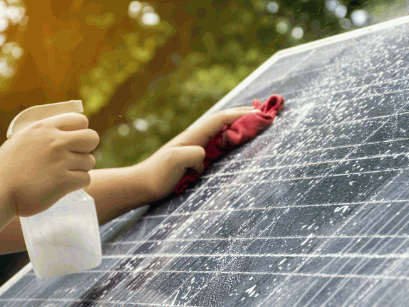
Using A Hose And A Soft Brush
Utilizing a hose and a soft brush is an effective method for cleaning solar panels, allowing for the thorough removal of dirt and debris while minimizing the risk of damage. The gentle pressure from the hose combined with the soft brush ensures comprehensive cleaning without compromising the panel’s surface.
This method is especially advantageous as it eliminates the need for harsh chemicals, which can potentially degrade the panel’s protective coating over time. Using appropriate tools and techniques is crucial to maintaining the efficiency of solar panels, ensuring that they continue to generate optimal power output.
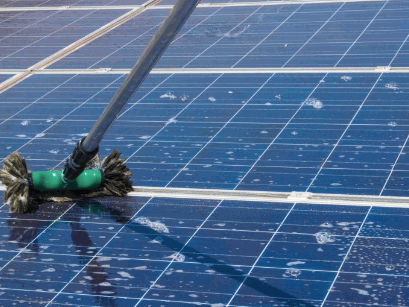
Using A Pressure Washer
When utilized with caution, a pressure washer can be employed to effectively clean solar panels, particularly for removing stubborn dirt and water stains. Careful adjustment of pressure levels and the use of suitable cleaning solutions can ensure thorough cleaning while safeguarding the integrity of the panels.
This method can be especially beneficial in tackling persistent dirt and water stains that may accumulate on solar panels, impacting their efficiency. The application of compatible cleaning solutions can further aid in the removal of grime without causing damage to the panels’ surface. It is vital to execute the cleaning process diligently, as excessive pressure or incompatible cleaning agents can lead to scratches or even structural harm to the panels.
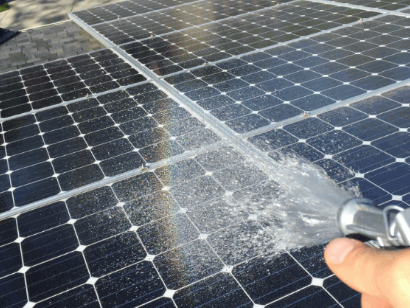
Using A Solar Panel Cleaning Kit
Specialized solar panel cleaning kits offer comprehensive solutions for maintaining the cleanliness and efficiency of solar panels. These kits often include gentle cleaning tools, specific cleaning solutions, and detailed instructions for safe and effective panel maintenance.
They are designed to provide a convenient and effective way of preserving the integrity of solar panels, ensuring maximum energy output. By using manufacturer-recommended maintenance guidelines, these kits help to prevent damage and degradation, ultimately extending the lifespan of the solar panels.
The gentle cleaning tools and suitable solutions in the kits ensure that the panels are thoroughly cleaned without causing any scratches or damage, promoting optimal performance and longevity.
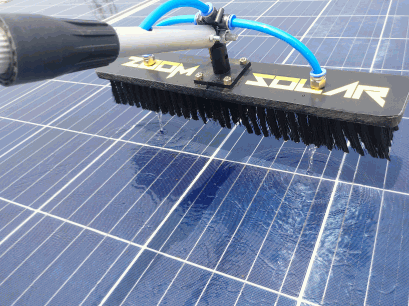
What Are The Dos And Don’ts Of Cleaning Solar Panels?
Adhering to best practices is essential when cleaning solar panels to ensure effective maintenance and prevent potential damage. Dos include using non-abrasive cleaning materials and scheduling cleaning during cooler parts of the day, while don’ts involve avoiding harsh chemicals and refraining from walking directly on the panels.
Gentle cleaning techniques are crucial to preserve the integrity of the solar panels, as abrasive materials can scratch the surface and reduce their efficiency. It’s advisable to perform maintenance early in the morning or late in the afternoon to avoid extreme temperatures that could lead to thermal stress. Harsh chemicals pose a risk of corroding the panels and should be completely avoided.
Considering professional cleaning services for thorough and safe maintenance may be the best approach, especially for larger installations, but DIY cleaning can be appropriate for smaller setups as long as careful consideration is practiced.
Do: Use Non-Abrasive Cleaning Materials
Utilizing non-abrasive cleaning materials such as soft cloths, sponges, or brushes is recommended to preserve the integrity of solar panels while effectively removing dirt and debris. These gentle cleaning tools help maintain the surface quality and transparency of the panels without causing damage.
By using soft cloths or sponges, the risk of scratching or etching the solar panel surface is significantly reduced, which is crucial for maximizing their efficiency and lifespan. When selecting cleaning solutions, it’s important to opt for mild, non-abrasive detergents or soaps specifically formulated for solar panel maintenance. Avoiding harsh chemicals or abrasive materials ensures that the panels remain free from residues or streaks, thus allowing them to capture and convert sunlight into energy more effectively.
Do: Clean During The Cooler Parts Of The Day
Choosing cooler times of the day for solar panel cleaning, such as early morning or late afternoon, can prevent rapid evaporation of cleaning solutions and reduce the risk of thermal stress on the panels. This approach ensures effective cleaning without subjecting the panels to unnecessary heat-related strain.
During these cooler periods, the panels are less likely to be hot from direct sunlight, making it easier to clean them thoroughly without the added challenge of dealing with extreme heat. Cleaning during these times can also contribute to better overall performance and efficiency of the solar panels, as they are able to operate at their optimal capacity without the hindrance of accumulated dust and debris.
Don’t: Use Harsh Chemicals
Avoiding the use of harsh chemicals, abrasive detergents, or solvents is crucial to prevent damage to solar panels and mitigate the potential environmental impact of chemical runoff. Harsh chemicals can compromise the surface quality and transparency of the panels, leading to reduced efficiency and long-term degradation.
Using environmentally friendly cleaning solutions is essential not only for maintaining the performance of the solar panels but also for minimizing the negative effects on the surrounding environment. Chemical runoff from harsh cleaning agents can contaminate soil and water sources, posing risks to local ecosystems. By opting for eco-friendly cleaners, the risk of harming wildlife, vegetation, and aquatic life due to toxic chemical residues can be significantly reduced.
It’s imperative to prioritize sustainable cleaning practices to uphold the functionality and integrity of solar energy systems while safeguarding the environment.
Don’t: Walk On The Panels
It is essential to avoid walking directly on solar panels during cleaning or maintenance activities to prevent structural damage or microcracks that could compromise their integrity.
Instead, individuals should consider alternative methods such as professional cleaning services or utilizing specialized equipment for safe and effective panel maintenance. Walking on solar panels can create stress points, leading to potential microcracks or even breakage, decreasing their efficiency and longevity.
Professional cleaning services can ensure thorough maintenance without risking panel damage while using specialized equipment allows for safe access to areas needing attention. Prioritizing these alternatives helps in safeguarding the integrity of solar panels and maximizing their performance.
What Are The Best Practices For Maintaining Solar Panels?
Implementing best practices for solar panel maintenance involves regular inspection for debris and damage, proactive vegetation management, and continuous monitoring of energy production to ensure sustained efficiency and longevity. These practices contribute to the sustainable performance and environmental impact of solar energy systems.
Regular inspection for debris and damage is essential in preventing potential downtime and maximizing energy output. By actively managing vegetation around the solar panels, the risk of shading and reduced efficiency is minimized.
Ongoing monitoring of energy production enables timely identification of any issues, ensuring the seamless operation of the solar energy system. These proactive measures not only enhance the overall performance of the solar panels but also significantly contribute to a greener and more sustainable environment.
Regularly Check For Debris And Damage
Frequent inspection and removal of debris leaves, and potential damage on solar panels are essential to maintain their efficiency and extend their lifespan. Regular checks help identify any issues early, minimizing maintenance costs and ensuring sustained energy production over time.
This proactive approach also prevents the accumulation of dirt and grime, which can significantly reduce the panels’ effectiveness. By staying on top of debris and damage, solar panel owners can maximize their energy output and minimize the risk of system downtime.
Regular inspections enable early detection of any technical problems, allowing for timely repairs and ultimately prolonging the overall lifespan of the solar energy system. Proactive maintenance not only supports efficient energy production but also delivers long-term cost savings and environmental benefits.
Trim Nearby Trees And Vegetation
Managing nearby trees and vegetation to prevent shading and debris accumulation on solar panels is a proactive practice that supports sustained energy production and reduces the need for frequent cleaning and maintenance. Pruning and vegetation control contribute to the overall efficiency and performance of solar energy systems.
By strategically managing trees and vegetation around solar panel installations, one can mitigate the risk of shading that can diminish solar energy output. Proactive vegetation control minimizes the accumulation of leaves, pollen, and other debris that can hinder the panels’ efficiency. This preventative maintenance significantly reduces the frequency of cleaning needed, leading to prolonged energy production and greater system efficiency.
Monitor Energy Production
Regular monitoring of energy production from solar panels enables early detection of performance issues or efficiency fluctuations, allowing for timely intervention and adjustment. This practice supports sustainable energy generation and contributes to the overall sustainability and environmental impact of solar energy systems.
The ability to identify and address even minor deviations in energy production enables solar panel owners to maintain optimal performance and extend the lifespan of their systems. By ensuring that solar panels operate at peak efficiency, energy production monitoring minimizes waste and enhances the environmental benefits of solar energy. This proactive approach helps to maximize the return on investment by safeguarding the long-term productivity and reliability of solar installations.



